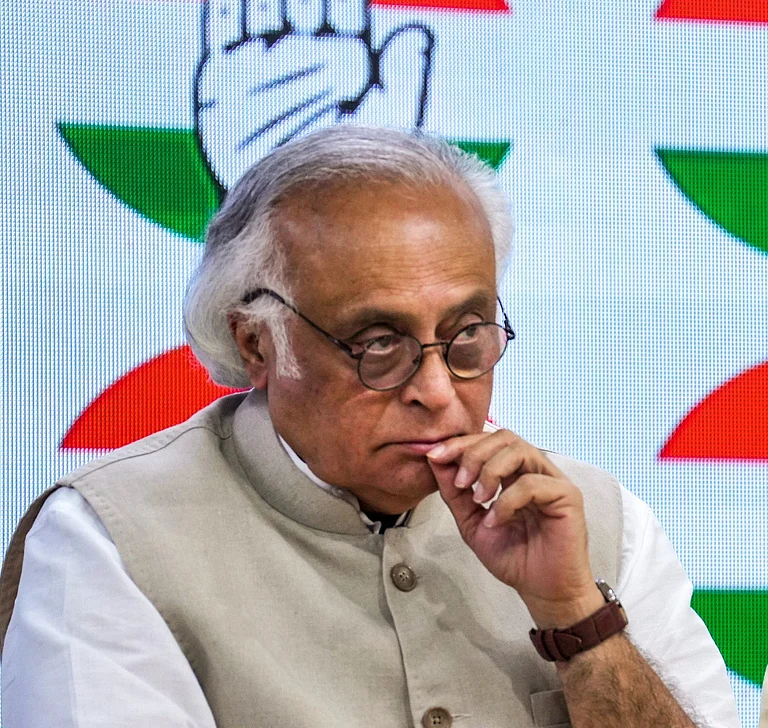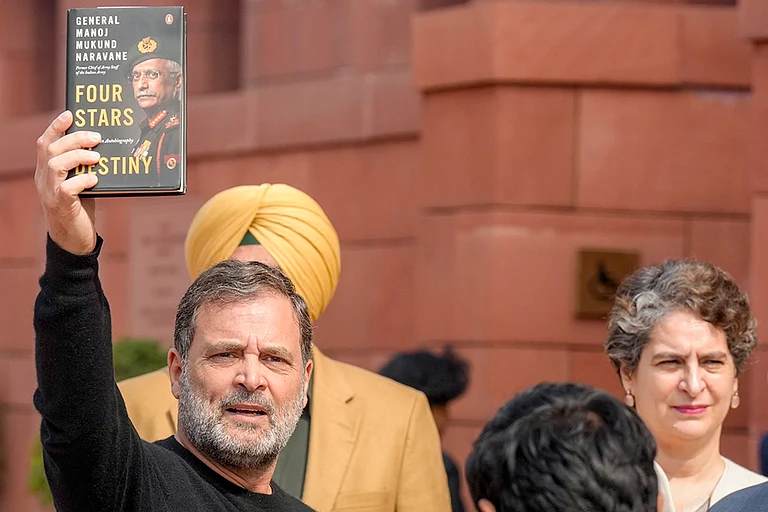The Lok Sabha election results of 2024 if have already secured a space in Indian history by electing the same leader as the Prime Minister consecutively for the third time, decades after Jawaharlal Nehru attained the same feat; another factor made it noteworthy- the return of coalition politics. Since 2014 when Narendra Modi became PM for the first time, one rarely heard the term ‘coalition compulsion’ that became a household phrase in the erstwhile years. However, the mandate of the people has made it clear that Indians want such ‘compulsion’ to determine their political trajectory, not the ‘absolute majority’.
As the BJP has failed to garner more than 240 seats and need minimum 32 to form the government, the speeches of the party bosses have gone through certain shifts. In the evening of June 4, PM Modi while addressing the party workers at the BJP headquarters multiple times evoked the term ‘NDA government’. It is quite unusual for a party that fought the election only in one leader’s name. From ‘Modi Sarkar’ to ‘Modi’s guarantee’, the campaign trail rarely had any space even to uphold the name of the party, leave the alliance. But as the changing political situations have shown, the alliance has become more important than either the party or the leader.
The major pre-poll alliance partners of the BJP- TDP and JD (U) have become the main players in the number game. In Andhra Pradesh, Chandra Babu Naidu’s TDP whereas has outridden the expectations with 16 seats, JD (U) in Bihar got 12 seats. Another Bihari partner LJP (Ram Vilas) with a strike rate of 100% won 5 seats and Eknath Shinde-led Shiv Sena got 7. All of these together make up for the seats that the BJP needs badly to form the government.
While the BJP leaders want to read a clear mandate in NDA numbers as blinking on the television channels, insiders say that there are enough commotions going on within that may affect the functionality of the government. Reportedly both Chandra Babu Naidu and Nitish Kumar have already reached Delhi to do the bargain. Political Pundits think that both would try to gain maximum benefits out of this deal as the results have made them the kingmakers. There are whispers in the political corridors that both of them would try to get the position of Lok Sabha speaker as it would give them a leverage in the cases of future ‘possible’ defections. One can’t forget that in Maharashtra it was due to speaker’s decision to not immediately disqualify the members of Eknath Shinde camp after they parted their ways with Thackrey that they could form the government with the support of BJP. Reports say that all of these would be decided in NDA’s meeting that is scheduled for June 5.
BJP’s history with the Coalition Partners
As the BJP is expected to practice coalition dharma after 10 years, one recalls how the party in the last decade has lost several allies. The first ally whom the BJP lost after the party came to power with Modi as the PM was Nitish Kumar. This was the beginning of Kumar’s flipflop. He opposed Modi’s selection as the Prime Ministerial candidate of the alliance. However, later on, he continued jumping boats until recently when he surprised everyone re-joining NDA amidst the speculation that he could be the potential face of INDIA bloc.
The relation of BJP and its old partner in Punjab Shiromani Akali Dal (SAD) also got marred during the farmers protests. In September 2020, they severed their ties. Political scientists think that it was SAD’s compulsion to snap the relations with BJP as otherwise it would have lost the political relevance amidst strengthening of farmer’s agitation. In 2024, though there were initial talks over SAD’s alliance with the BJP, it didn’t materialise.
BJP’s one of the silent allies Biju Janta Dal (BJD) had suddenly become eye-sore as Modi’s efforts to clinch a deal with Odisha CM Biju Patnaik failed. In the early days of campaigns whereas PM Modi was in all praise for the second longest serving CM of the country, within days, he took a U-turn. However, the BJD has been decimated across Lok Sabha and assembly elections after almost two decades, vacating the space for the BJP that is going to form the government soon.
Relations of BJP with TDP has never been consistent. In 2014, though Naidu joined Modi government, he left the alliance to fight independently just before 2018 Andhra Pradesh assembly elections. However, for him the biggest blow was his arrest in 2023 for his alleged involvement in Skill Development Corporation Scam. In November, though he got permanent bail, the speculations are ripe that he would be very cautious while treading through the coalition path. Naidu also hasn’t forgot that the central government sent ED to raid his premises just after he left the BJP in 2018. Criticising the Modi government for sending ED to silence political adversaries, he said, “Whoever speaks against Narendra Modi faces IT and ED raids. We will not be afraid of all these acts. We will fight for justice until we achieve it. I am speaking on behalf of 5 crore people.” In the recent past, with one former and one current CM in jail for their alleged role in different scams, it is difficult to believe that Naidu would take the risk to jump the boat, says a political analyst.
BJP growing at the cost of Coalition partners?
As BJP’s relations with the partners in the central government have mostly been controversial, its history to run state governments with alliance partners also fail to instill much hope. In 2019, after Haryana assembly polls when BJP didn’t have the required numbers to form the government, it was Dushyant Chautala’s JJP and his nine legislators who came for rescue. They also made Chautala the Deputy CM.
But in 2024, during the seat-sharing talks, Chautala became ‘too demanding’ for them, and they unanimously decided to severe their ties with JJP. Interestingly, when BJP severs ties, it not only keeps its flocks together, rather it benefits when the others bleed. A few MLAs of JJP parted ways with Chautala and inched closer to BJP. Notably, Chautala demanded 2 out of 10 seats in Haryana. Though BJP won all of the seats in this north Indian state in 2019, in 2024, the INDIA bloc won 5.
In Maharashtra, despite its pre-poll alliance with former Shiv Sena Chief Uddhav Thackrey, BJP couldn’t form the government. And after much drama over years, when it staked claims, it did it at the cost of bleeding Shiv Sena and NCP. Against this backdrop, it is difficult to speculate how the things would shape in the impending days. What would Kumar or Naidu ask for? What extent would BJP have to buckle down to garner the numbers?
As the BJP camp is busy to clinch the final deals, the INDIA bloc is also readying its horses. After the results, Rahul Gandhi while addressing a press conference didn’t rule out the speculations of INDIA approaching Naidu and Kumar. Rather, he said that the decision would be taken in a meeting the following day. RJD leader Tejashwi Yadav after reaching the national capital has already said, ‘age age dekho hota hai kya’. SP supremo Akhilesh Yadav, however, hasn’t said much on the possibility of staking claims and said that ‘numbers will decide’.
In this context, one old video of Home Minister Amit Shah’s speech shared by the official page of Congress president Mallikarjun Kharge, nevertheless, is doing the rounds on the social media. In the video Shah could be heard saying, “In the history of India, you would not find a single opportunist leader like Chandrababu Naidu!” And the text on the video says, “Will Chandrababu Naidu take the revenge now?” As the power corridors of Lutyens is pack-jammed in speculations, the only phrase that is coming back again and again- after 10 years- ‘coalition dharma’ and ‘coalition compulsion’.




























